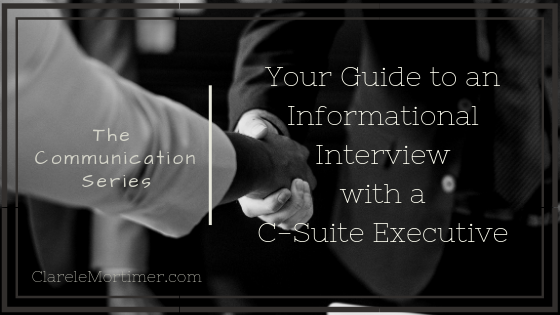An informational interview is a great way to learn more about an industry or company you may want to join. It’s also a natural way to form genuine connections with leaders in your field.
The first step of an informational interview is asking for the interview. Making the initial ask can be nerve-wracking, but your mindset can make all the difference in your approach. Remember, you’re not an inconvenience. Being a life-long learner is a beautiful quality. For professionals, an informational interview is the equivalent of an investigative journalist consulting an expert for their latest article.
Many CXOs and company leaders love to share their expertise and would be honored to connect with an inquisitive mind. After all, everyone likes to be reminded that they’re important. Seeking an informational interview sets you up for success while giving industry experts the opportunity to share their stories and knowledge. It’s a win-win!
To ask for the interview, send a friendly, concise message indicating that you’d like to chat about their professional experience. It doesn’t hurt to tell them why you’re seeking the information (thinking about a career change, etc.).
If you can naturally work it into your ask, I would also recommend including a compliment regarding their accomplishments. For example, say you’re reaching out specifically because of their interesting experience with handling XYZ so well. If you want a bold introduction, you could instead use a pain letter as a way to ask for an interview.
Successfully setting up the meeting is only half the battle. After securing an appointment, you need to switch your focus to think about the interview itself.
- Research and Prepare
If you fail to prepare, you’re wasting everyone’s time. Don’t ask questions that can easily be found in interviews or blog posts the executive has already participated in. Instead, find that information and use it to go deeper. Focus on motives and how small details feed into the bigger picture.
Have questions and topics prepared, but don’t forget that this is a conversation and not an investigation. Be casual and flexible, yet professional.
You should also anticipate certain questions you might be asked. For example, your opinion on hot topics in the industry or your own experience. You may not be the “expert” in the room, but that doesn’t mean you should be afraid to add value to the conversation.
- Don’t Overstay Your Welcome
Even the best conversations must come to an end. It’s best to be respectful of the interviewee’s time. When there are 5-10 minutes left in the interview, casually mention that you want to be mindful of the time. This gives the executive an opportunity to gracefully end the conversation.
If they choose to extend the interview or schedule a follow-up conversation, that’s even better. Either way, it is a testament to your professionalism that you respect another person’s time and schedule.
- Don’t Let the Connection Go Stale
Neglecting to follow up is one of the biggest mistakes you can make. Send a thank-you note that explicitly shows your appreciation for the opportunity to learn from the executive’s hard-earned experience.
A handwritten note has a nice touch, but an email has other advantages. For example, you could send an article link related to a topic you discussed, showing that you truly absorbed the information and used it to continue your professional development.
Your first informational interview may be awkward, but they get easier as time goes on. For this reason, it may be best to become a seasoned interviewer before reaching out to a professional you’re especially interested in sitting down with.
A simple conversation can open so many possibilities. Don’t be afraid to go for it!

